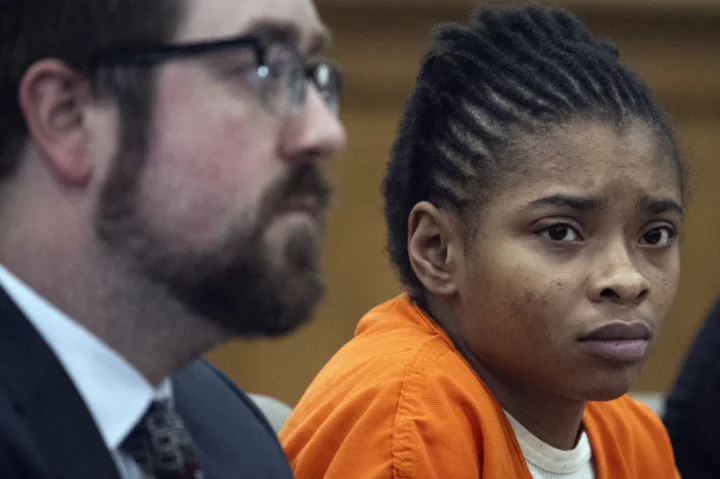
A Milwaukee woman who confessed to killing a man she claimed sexually trafficked her has been sentenced to 11 years in prison Monday in Kenosha.
Kenosha County Judge David Wilk sentenced 24-year-old Chrystul Kizer to an additional five years of state supervision after she pleaded guilty in May to a count of reckless homicide in Randall P. Volar's June 2018 death.
Kizer was 17 when she killed the 34-year-old Volar in Kenosha.
Kizer's case has attracted national attention, with advocates for survivors of sexual trafficking supporting her and pushing for the charges to be dropped.
"The court is well aware of your circumstances surrounding your relationship with Mr. Volar," Wilk said as he delivered his sentence.
"You are not permitted to be the instrument of his reckoning. To hold otherwise is to endorse a descent into lawlessness and chaos."
At the hearing, Kizer's mother spoke of the difficult upbringing the family had when they moved from Indiana to Milwaukee.
Chrystul, who her attorney said was baptized recently in prison, invoked the Bible in a written statement read to the court, quoting the Book of Genesis and Psalms.
"I don't know where to start, but I'm asking for your generosity in my sentence today. I understand that I committed sins that put the Volar family in a lot of pain," she said.
The prosecutor and defense attorney offered their telling of how the incident came to pass in the hearing.
Kizer's defense attorney, Jennifer Bias, pointed to her adverse childhood, the effects of trafficking and how it affects Black women specifically when asking for a gentle sentence. Advocates and the legal team have said she lashed out after years of being trafficked by Volar.
At the hearing, Bias said Volar paid her bail for a prior offense and used it as leverage to traffic her to other men at a hotel in Milwaukee. Kenosha County District Attorney Michael Graveley disputed the idea during his statement, saying no electronic evidence existed proving that.
"There is no other conclusion to draw from the evidence that is available to us in this matter involving (the two) that Chrystul is a sex trafficking victim," Bias said.
Graveley said Kizer had acted out of a grab for notoriety and for material gain. Graveley said texts, social media videos, and other statements from others suggested Kizer acted for those purposes.
He did not recommend any length of prison time, just asked Kizer receive some length of imprisonment.
"We in no way ask the court to consider Mr. Volar to be blameless in this case," Graveley said. "The fact that he is not blameless as a victim in no way excuses the conduct."
Judge Wilk also issued an order that Kizer receive about a year and a half of credit for time served during her case. This means she will be in prison for just under 10 years.
Kizer was just 17 when she initially was charged in the case with first-degree intentional homicide and the case garnered significant international attention through its six years.
Claudine O'Leary, an independent sexual trafficking survivor consultant who worked with Kizer and attended the hearing, said she was saddened by the sentencing.
She has worked for the last several months to organize community resources Kizer could rely on if released into the community.
The Wisconsin prison system does not have adequate resources to support survivors of sexual trafficking, she said.
O'Leary also said she works with many trafficking survivors who already don't trust the court system and Monday's sentencing would worsen that.
"They're getting from the court system is to say 'My life doesn't matter if I defend myself, I have to be prepared to go to prison,'" she said. "There's just a profound lack of understanding of the kind of harm that people actually experience."
At the hearing, Kizer's defense attorney said Kizer was first trafficked at 16, when she posted an ad on a website later seized by the FBI as a forum for prostitution. It offered her money she used to buy food for her siblings, she said.
Kizer's previously said she didn't know who would respond since she was new to the site and had to have another girl show her how to use it.
Anti-violence groups jumped to Kizer's defense, arguing in court briefs that trafficking victims feel trapped and sometimes feel as if they have to take matters into their own hands.

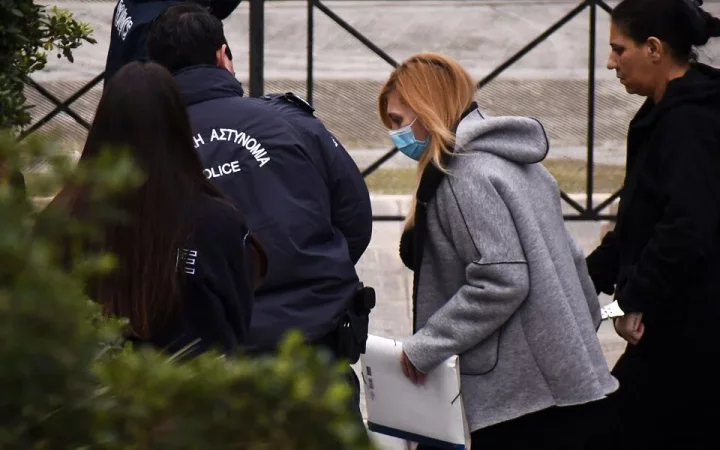
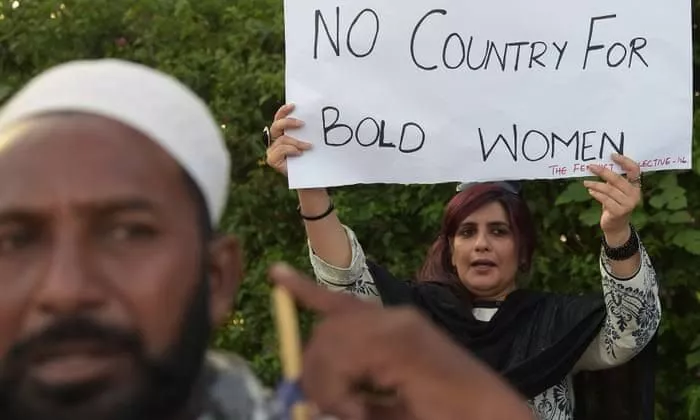
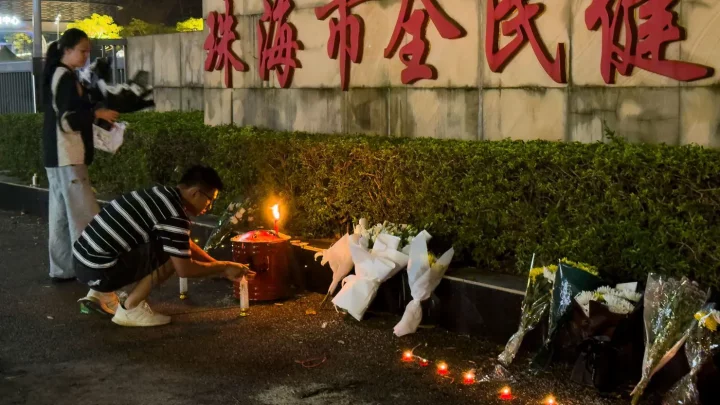
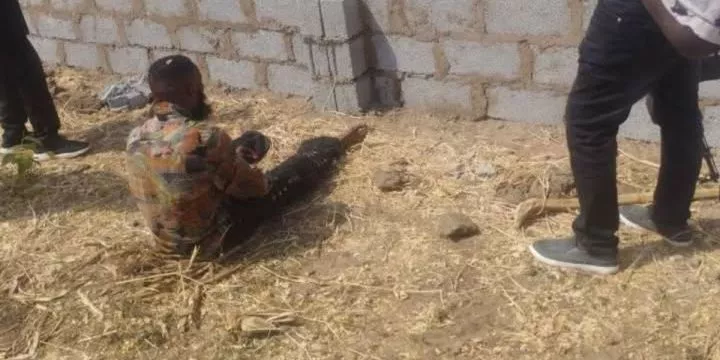



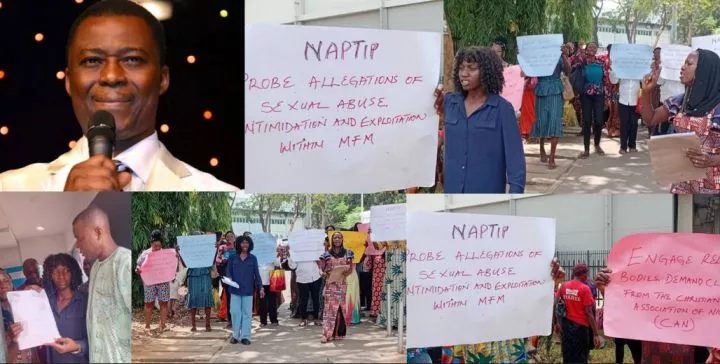


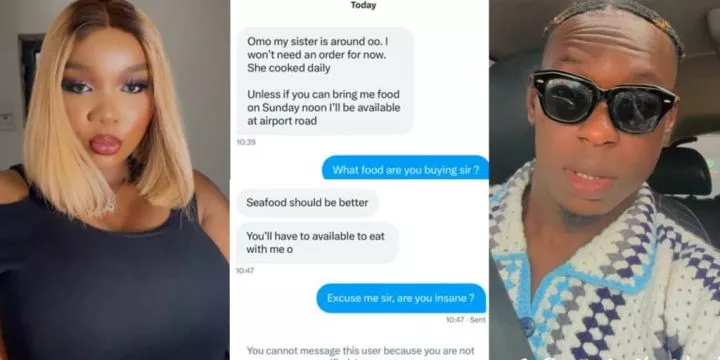




Comments